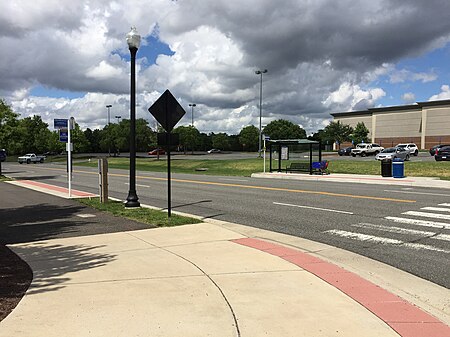Reed station
2014 establishments in VirginiaBuildings and structures in Alexandria, VirginiaBus stations in VirginiaMetrowayTransport infrastructure completed in 2014 ... and 3 more
United States bus transportation stubsVirginia building and structure stubsVirginia transportation stubs

Reed, also known as Potomac Yard, is a bus rapid transit station in Alexandria, Virginia, located on Potomac Avenue and Reed Avenue. It is a stop on the portion of the mixed-traffic segment of the Metroway bus rapid transit line, providing two-way service along the route. The station provides service to the central Potomac Yard and Potomac communities in Alexandria. Reed serves as the alternate southern terminal for some Metroway buses.
Excerpt from the Wikipedia article Reed station (License: CC BY-SA 3.0, Authors, Images).Reed station
Potomac Avenue, Alexandria Potomac Yard
Geographical coordinates (GPS) Address Nearby Places Show on map
Geographical coordinates (GPS)
| Latitude | Longitude |
|---|---|
| N 38.837591 ° | E -77.048997 ° |
Address
Potomac Ave & Reed Ave
Potomac Avenue
23305 Alexandria, Potomac Yard
Virginia, United States
Open on Google Maps







